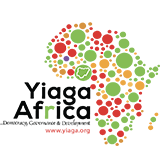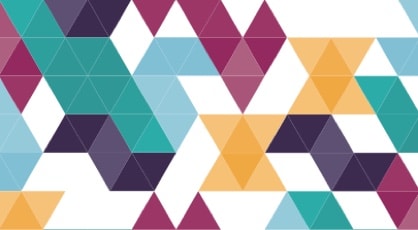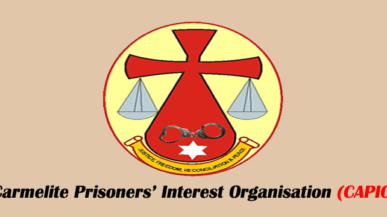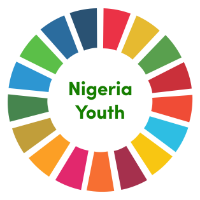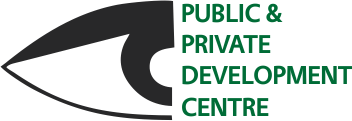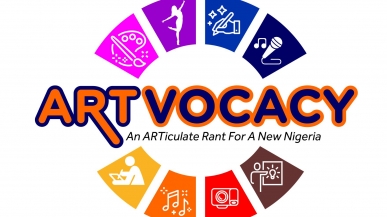Call for proposal
I-RAnT!
Nigeria Influencing Grant V-20147-NG-IF
-
Grant amount
Maximum €200,000Project Duration
18 - 30 MonthsClosing date
07 Feb 2021 -
-
-
Grants
Inclusive Rightsholder-led Accountability and Transparency (I-RAnT)
Voice believes in periodically reviewing on matters touching the five rightsholder groups around the three impact areas. Recent events in Nigeria; – COVID-19, Youth uprising- #EndSARS; exposure of high-level corruption by politicians, reveal the need to focus on Voice impact areas in Nigeria now more than ever before.
These issues and more that came out from the Nigeria Context Analysis inspired this Call for Proposals dubbed, I-RAnT! Taken in its literal sense to mean ‘ranting’ it is about making governments more responsive. Responsive to the needs of those who they ought to serve, putting rightsholders at the very centre of decision making, ensuring adequate checks on resources used for the public good, and making public services fully accessible for everyone.
What are we looking for?
Strong Civil Society Organisations (CSOs), coalitions, networks or collaborative partnerships are invited to submit proposals that leverage transparency and accountability approaches in support of progress on any one of the Voice main impact areas (increasing access to resources, access to services and avenues for participation) or a combination of them. There are many different options that you might wish to pursue, but here are some examples of actions/interventions we are looking for, to inspire your thoughts;-
- Campaigns, coalitions, or bold movements that will interrogate the status quo (state of things in Nigeria);
- Online engagement as the most preferred channel, where young people will interrogate issues, speak up against bad governance and demand for change;
- Demand accountability from the leaders on violation of human rights, police brutality; the violence of any form on citizens;
- Budget monitoring and tracking of approved government projects;
- Continue to watch and monitor the civic (particularly digital) space and ensure it remains open, ensure citizens engage meaningfully and have the capacity to do so;
- Prepare young people and women to participate meaningfully in politics with 2023 general elections in view, and to participate in decision making at all levels;
- Action that can facilitate a movement of young people, strengthen their capacity to engage and use varied platforms to speak up;
- Bridging gender gaps, power differences, resource imbalance etc. as it affects the Voice groups at the grassroots level;
- Actions advancing rule of law, good governance, inclusive, transparent/accountable governance at the grassroots level;
- Effective implementation of existing laws that promote inclusiveness and rights of Voice groups;
Voice in Nigeria will prioritise collaborations among organisations led by or representing marginalised communities and those bringing transparency and accountability expertise. We will have a preference for projects that are truly committed to putting Voice rightsholders in the lead.
Priority is given to applications led by organisations that represent or work on, for, and/or with the following rightsholder groups:- Vulnerable elderly and young people
- Indigenous people and ethnic minorities
- People with disabilities
- Women facing exploitation, abuse, and violence
Intersectionality is at the very heart of Voice. Therefore, we have a strong preference for selecting projects that intend to work with more than one of the Voice rightsholder groups to address overlapping or cross-cutting challenges and promote inter-and/or intra-group solidarity.
For more ideas on what issues Voice prioritises on, please read the Voice in Nigeria Context Analysis and also be inspired by the multi-country grants on From Open to inclusive Governance
Proposals need to be at least 18 – 30 months with a budget of up to €200,000.
What do we mean by Influencing?
Based on the Voice Theory of Change, influencing is the process where rightsholders and their representatives use a range of lobby and advocacy tools to influence individuals, families, communities, private business, religious leaders, (social) media, and other decision-makers’ policies, practices, and behaviours. We are less interested in supporting projects just organising workshops but more on out-of-the-box advocacy tools that are fun and creative, appealing to the Voice rightsholders. Ultimately, the combined interventions will lead to rightsholders:
- claiming their rights as equal citizens;
- having a meaningful participation in political, economic, and social spheres, and;
- accessing services and resources.
Influencing should happen and move across multiple levels from individuals to communities to (sub-) national. Actions at the individual level can reinforce actions at other levels. In general, influencing grants target organisations and networks to strengthen their lobby and advocacy capacities and amplify the voices of rightsholder groups.
Who do we wish to fund?
Applications will be accepted from ONLY locally registered not-for-profit Nigerian organisations working in Abuja, Lagos, and Enugu. Applicants registered outside these States are nevertheless eligible to apply as far as they have a project base/office in the focal States and can provide the intervention there without undue travel cost allocated to Voice. International organisations are NOT eligible to apply as lead organisations but can be co-applicants in case of consortium applications.
What we won’t fund
- Organisations with an annual turnover of over €2 million.
- An application where the grant awarded from Voice is more than 50% of the total annual income of the applicant organisation.
- The way to calculate this is to divide the requested amount by number of years the project will be implemented. The result will then be divided by the annual income.
- If the result of this calculation is over 50% you can either reduce the requested amount or team up as part of a consortium where you can add up the annual incomes.
- Funding of commercial services, investment or other commercial activities.
Practising the Values of Voice
Voice believes in the principle of Nothing About Us Without Us. In practice, this means Voice rightsholder groups need to be at the centre of any effort. They must be involved in the conceptualisation, planning, and implementation of any grant. They are equal partners in any consortium, network, or coalition, playing key governance and leadership roles.
Linking and Learning
Linking and Learning is at the heart and soul of Voice. All grantees are expected to participate in facilitated meetings and gatherings enabling the exchange of ideas and learnings from each other’s experiences. Applicants must demonstrate in their proposals how they will identify, document, and share their learnings as they implement their project. These may come in many forms such as blog posts, videos, photo essay or audio recordings.
Voice values diversity and inclusion. All grantees are expected to be able to interact with and learn from a diverse group of people coming from different backgrounds, orientations, and experiences. Interested applicants must be willing to work in a diverse community, which includes representatives from all of the Voice rightsholder groups.
From the numerous applications received the following grantees have been successful as part of this Call for Proposals. If you like to join Voice please see the current list of open Calls for Proposals
-
About
Inclusive Rightsholder-led Accountability and Transparency (I-RAnT)
Voice believes in periodically reviewing on matters touching the five rightsholder groups around the three impact areas. Recent events in Nigeria; – COVID-19, Youth uprising- #EndSARS; exposure of high-level corruption by politicians, reveal the need to focus on Voice impact areas in Nigeria now more than ever before.
These issues and more that came out from the Nigeria Context Analysis inspired this Call for Proposals dubbed, I-RAnT! Taken in its literal sense to mean ‘ranting’ it is about making governments more responsive. Responsive to the needs of those who they ought to serve, putting rightsholders at the very centre of decision making, ensuring adequate checks on resources used for the public good, and making public services fully accessible for everyone.
What are we looking for?
Strong Civil Society Organisations (CSOs), coalitions, networks or collaborative partnerships are invited to submit proposals that leverage transparency and accountability approaches in support of progress on any one of the Voice main impact areas (increasing access to resources, access to services and avenues for participation) or a combination of them. There are many different options that you might wish to pursue, but here are some examples of actions/interventions we are looking for, to inspire your thoughts;-
- Campaigns, coalitions, or bold movements that will interrogate the status quo (state of things in Nigeria);
- Online engagement as the most preferred channel, where young people will interrogate issues, speak up against bad governance and demand for change;
- Demand accountability from the leaders on violation of human rights, police brutality; the violence of any form on citizens;
- Budget monitoring and tracking of approved government projects;
- Continue to watch and monitor the civic (particularly digital) space and ensure it remains open, ensure citizens engage meaningfully and have the capacity to do so;
- Prepare young people and women to participate meaningfully in politics with 2023 general elections in view, and to participate in decision making at all levels;
- Action that can facilitate a movement of young people, strengthen their capacity to engage and use varied platforms to speak up;
- Bridging gender gaps, power differences, resource imbalance etc. as it affects the Voice groups at the grassroots level;
- Actions advancing rule of law, good governance, inclusive, transparent/accountable governance at the grassroots level;
- Effective implementation of existing laws that promote inclusiveness and rights of Voice groups;
Voice in Nigeria will prioritise collaborations among organisations led by or representing marginalised communities and those bringing transparency and accountability expertise. We will have a preference for projects that are truly committed to putting Voice rightsholders in the lead.
Priority is given to applications led by organisations that represent or work on, for, and/or with the following rightsholder groups:- Vulnerable elderly and young people
- Indigenous people and ethnic minorities
- People with disabilities
- Women facing exploitation, abuse, and violence
Intersectionality is at the very heart of Voice. Therefore, we have a strong preference for selecting projects that intend to work with more than one of the Voice rightsholder groups to address overlapping or cross-cutting challenges and promote inter-and/or intra-group solidarity.
For more ideas on what issues Voice prioritises on, please read the Voice in Nigeria Context Analysis and also be inspired by the multi-country grants on From Open to inclusive Governance
Proposals need to be at least 18 – 30 months with a budget of up to €200,000.
What do we mean by Influencing?
Based on the Voice Theory of Change, influencing is the process where rightsholders and their representatives use a range of lobby and advocacy tools to influence individuals, families, communities, private business, religious leaders, (social) media, and other decision-makers’ policies, practices, and behaviours. We are less interested in supporting projects just organising workshops but more on out-of-the-box advocacy tools that are fun and creative, appealing to the Voice rightsholders. Ultimately, the combined interventions will lead to rightsholders:
- claiming their rights as equal citizens;
- having a meaningful participation in political, economic, and social spheres, and;
- accessing services and resources.
Influencing should happen and move across multiple levels from individuals to communities to (sub-) national. Actions at the individual level can reinforce actions at other levels. In general, influencing grants target organisations and networks to strengthen their lobby and advocacy capacities and amplify the voices of rightsholder groups.
Who do we wish to fund?
Applications will be accepted from ONLY locally registered not-for-profit Nigerian organisations working in Abuja, Lagos, and Enugu. Applicants registered outside these States are nevertheless eligible to apply as far as they have a project base/office in the focal States and can provide the intervention there without undue travel cost allocated to Voice. International organisations are NOT eligible to apply as lead organisations but can be co-applicants in case of consortium applications.
What we won’t fund
- Organisations with an annual turnover of over €2 million.
- An application where the grant awarded from Voice is more than 50% of the total annual income of the applicant organisation.
- The way to calculate this is to divide the requested amount by number of years the project will be implemented. The result will then be divided by the annual income.
- If the result of this calculation is over 50% you can either reduce the requested amount or team up as part of a consortium where you can add up the annual incomes.
- Funding of commercial services, investment or other commercial activities.
Practising the Values of Voice
Voice believes in the principle of Nothing About Us Without Us. In practice, this means Voice rightsholder groups need to be at the centre of any effort. They must be involved in the conceptualisation, planning, and implementation of any grant. They are equal partners in any consortium, network, or coalition, playing key governance and leadership roles.
Linking and Learning
Linking and Learning is at the heart and soul of Voice. All grantees are expected to participate in facilitated meetings and gatherings enabling the exchange of ideas and learnings from each other’s experiences. Applicants must demonstrate in their proposals how they will identify, document, and share their learnings as they implement their project. These may come in many forms such as blog posts, videos, photo essay or audio recordings.
Voice values diversity and inclusion. All grantees are expected to be able to interact with and learn from a diverse group of people coming from different backgrounds, orientations, and experiences. Interested applicants must be willing to work in a diverse community, which includes representatives from all of the Voice rightsholder groups.
-
How to apply?
This Call for Proposals is closed and no longer accepting applications. Come back here at a later stage to learn about the grantees that have been selected in this Call for Proposals.
The current open Calls for Proposals can be found here.
-
This Call for Proposals is closed and no longer accepting applications. Come back here at a later stage to learn about the grantees that have been selected in this Call for Proposals.
The current open Calls for Proposals can be found here.
-
From the numerous applications received the following grantees have been successful as part of this Call for Proposals. If you like to join Voice please see the current list of open Calls for Proposals


